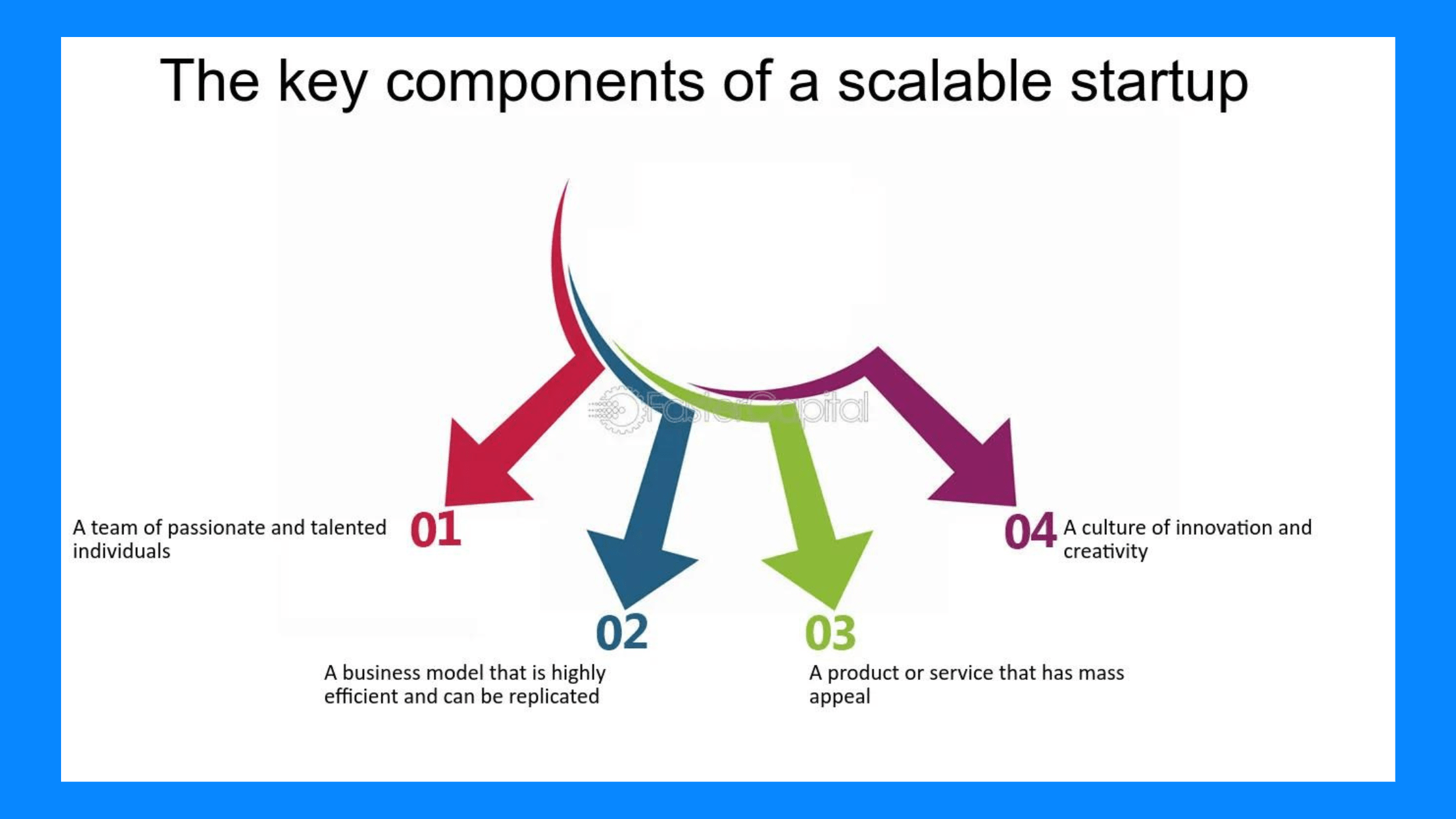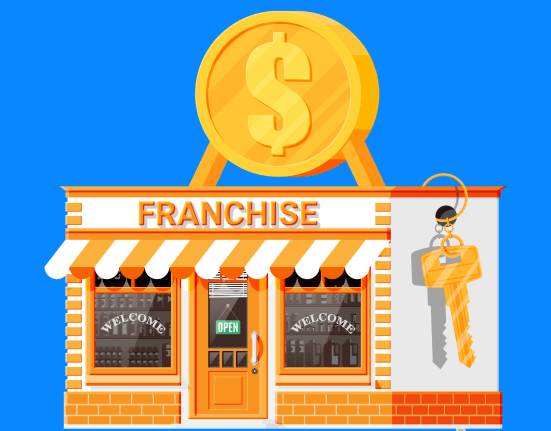Starting a business is exciting. Every startup is created with a lot of enthusiasm and aspirations, but not all startups are created equal. Some have the potential to multiply and reach new heights. This is where scalable startup entrepreneurship comes in.
Scalable startups are designed to grow efficiently and rapidly, making a significant impact in their industry. Understanding the principles of scalability can set your startup on a path to success. After all, you won’t start a business just to earn a ‘salary’ every month, would you? It’s natural to want to scale your startup.
In this guide, we’ll explore what scalable startup entrepreneurship is and why it matters. We’ll also provide practical steps to help you build a scalable business. Whether you’re just starting or looking to expand, this guide will set you on the right path. But first –
What is Scalable Startup Entrepreneurship?
Scalable startup entrepreneurship is all about building a business that can grow quickly without a huge increase in costs. Picture a company that creates a new software product. As more people use the software, the company doesn’t need to hire a lot more staff.
This ability to grow revenue without equally increasing costs is scalability. Key traits of scalable startups include a strong business model, innovative products, and the potential to reach a large market. The benefits are clear:
- higher profits,
- faster growth, and
- a big competitive edge.
When you understand scalable startup entrepreneurship, you’re on the right path to building a successful business.
Why Scalability Matters in Startups
As I said before, you don’t want to start a business that feels like a job and gives you a set salary. You want to scale and automate. Scalability is crucial for long-term success.
A scalable business can grow revenue quickly while keeping costs low, leading to higher profits and better returns on investment. Think of companies like Uber and Airbnb. They started small but grew fast to become giants. Without scalability, startups struggle to expand and compete.
A local bakery, for instance, can only make so many cakes a day and would need new locations and more staff to grow, increasing costs. But a digital product, like an app, can reach thousands or millions of users with little added cost. By focusing on scalability, you can build a strong, sustainable business that can adapt and grow.
Elements of a Scalable Startup
Building a scalable startup demands some key elements. You can’t scale every business (look at the bakery example above), and to scale the ones that can be scaled, you need these:

Source: FasterCapital
1. Innovative Product or Service
Your product or service needs to stand out. Innovation is key. It’s not just about having a great idea, but one that meets market needs (product-market fit) and can be easily replicated or expanded. A unique software solution that solves a common problem can attract many users. The more innovative and essential your product, the easier it is to scale.
2. Market Potential
A scalable startup needs a large market. You must assess the market size and demand for your product. For example – you can’t build a product that a hundred people need. That model isn’t scalable. However, if you build software needed by corporations all over the world, scalability will be inevitable.
Know your target audience and their needs. Conduct thorough market research to understand growth potential. Look for trends and gaps in the market that your product can fill. A large, growing market ensures there is enough demand to support your business as it scales.
3. Strong Business Model
Not the product, not the market potential, but a solid business model is the backbone of scalability. Think of it more like your plan of action, the flow of business.
Your business model should focus on generating revenue while keeping costs low. Think of multiple revenue streams and a cost-efficient structure. For example, a subscription-based model provides steady revenue, while digital products can be sold at a high margin with minimal production costs.
A strong business model also considers the cost of acquiring new customers and aims to keep these costs low.
4. Technology and Automation
You can’t build or scale a business without using technology. It is almost impossible. You can’t even live your life easily without tech. Anyway:
Technology gives you automation tools that help streamline operations and reduce costs. The more you can automate, the easier it is to scale. Using automated marketing tools can help you reach more customers with less effort, while cloud computing handles increased data without physical servers.
Technology lets you scale efficiently, ensuring your business can grow without being slowed by manual processes and high operational costs.
Steps to Build a Scalable Startup
Building a scalable startup requires planning and top-notch execution. Here are the key steps to ensure your startup can grow efficiently and effectively.
1. Identify a Scalable Idea
The first step in scalable startup entrepreneurship is identifying a scalable idea. Conduct thorough market research to find out what people need and what gaps exist in the market. Validate your idea by gathering feedback from potential customers.
This ensures your idea has the potential to grow and meet a large market demand. Scalable startup entrepreneurship thrives on ideas that can be replicated and expanded easily.
2. Develop a Scalable Business Model
Creating a business model that supports scalability is crucial. Your business model should focus on generating revenue while keeping costs low. Think about different revenue streams that can boost your income.
A subscription-based model or digital products often work well because they offer a steady income with low production costs. Study case studies of successful scalable business models to learn what works. A strong business model is a foundation for scalable startup entrepreneurship.
3. Integrate Technology as Much as Possible
As we’ve already talked about, technology is a powerful tool for scaling your startup. Use tech solutions to automate processes and reduce costs. Implement automation tools to streamline operations.
This can include everything from marketing automation to using cloud computing for data management. The more you can automate, the easier it will be to scale your startup efficiently.
4. Build a Strong Team
A strong team is essential for any startup, and it’s crucial for scalability too. Hire skilled personnel who can help your business grow. Delegate tasks effectively and create a team structure that supports scalability. Your team should be adaptable and ready to tackle the challenges that come with rapid growth in scalable startup entrepreneurship.
5. Focus on Customer Acquisition and Retention
Attracting customers is one thing, but keeping them is another. You can’t scale if new customers come in and old ones go out. Retaining customers is vital for scalability. Develop strategies to attract and retain customers.
Use digital marketing, social media, and other online tools to reach a larger audience. Once you have customers, focus on keeping them happy and engaged. Customer retention is often cheaper than acquisition, and loyal customers can become advocates for your brand.
6. Seek Investment and Funding
Not all startups need funding to scale, but we all know the thrill of getting VC funding. Anyway, if you want to scale your startup, you might need external funding. Look into various funding options like venture capital, angel investors, and crowdfunding. Prepare a solid pitch that highlights the scalability of your startup.
Investors are more likely to fund businesses that have a clear path to growth and profitability, which is the core of scalable startup entrepreneurship.
Note: You can build and scale a startup without funding too. The best and closest example of that is Fountane. Read the story here.
Challenges in Scalable Startup Entrepreneurship
While building a scalable startup is exciting, it comes with its own set of challenges. Many startups see their downfall because they oversee the challenges that come their way.
Here are some common challenges you might face while scaling your startup:
1/ Managing Rapid Growth
Rapid growth can be both a blessing and a curse. When your startup scales quickly, it can strain your resources and operations. You might face issues like overworked employees, supply chain bottlenecks, and maintaining product quality. It’s crucial to have a plan in place to manage this growth efficiently.
2/ Ensuring Consistent Quality
As you scale, maintaining the quality of your product or service can become challenging. With more customers and higher demand, the risk of errors and quality issues increases. Implementing robust quality control processes and investing in training for your team can help maintain high standards.
3/ Securing Funding
Scaling often requires significant investment. Finding and securing funding can be a major hurdle. You need to convince investors of your startup’s scalability and potential for high returns. Prepare a compelling pitch that showcases your growth strategy, market potential, and business model to attract investors.
4/ Keeping Operational Costs Low
While revenue should increase as you scale, it’s important to keep operational costs under control. High costs can eat into your profits and hinder growth. Use technology and automation to streamline processes and reduce expenses. Continuously monitor and optimize your operations to ensure efficiency.
Strategies to Overcome These Challenges
To overcome these obstacles, stay flexible and adaptable. Continuously monitor your market and be ready to pivot if necessary. Use technology to streamline operations and reduce costs. Build a strong team that can handle the pressures of rapid growth. In short, stay vigilant, and adaptable, and follow the 6-step process I mentioned above.
Conclusion
As we wrap up this monologue around scalable startup entrepreneurship, it’s clear that growing a business is both exciting and challenging. We’ve seen how important it is to innovate, use technology wisely, build strong teams, and focus on customers. I’ve done my part, now it’s your turn to keep this article in mind when you build a startup.
Remember, scaling a startup is not just about making more money. It’s about making a real impact and creating something meaningful. Along the way, you’ll face obstacles like managing fast growth, finding funding, and keeping costs in check. But these challenges will teach you valuable business lessons. Are you up for it?
FAQs
What is a scalable start-up entrepreneurship?
Scalable start-up entrepreneurship involves creating a business model designed for rapid and sustainable growth, often leveraging technology to expand operations efficiently.
What is scalability in entrepreneurship?
Scalability in entrepreneurship is the ability of a business to grow its revenue and market reach without a proportional increase in costs, ensuring efficient and profitable expansion.
What is an example of a scalable business?
An example of a scalable business is a software-as-a-service (SaaS) company, which can add new customers at low incremental costs after the initial development.











Leave feedback about this